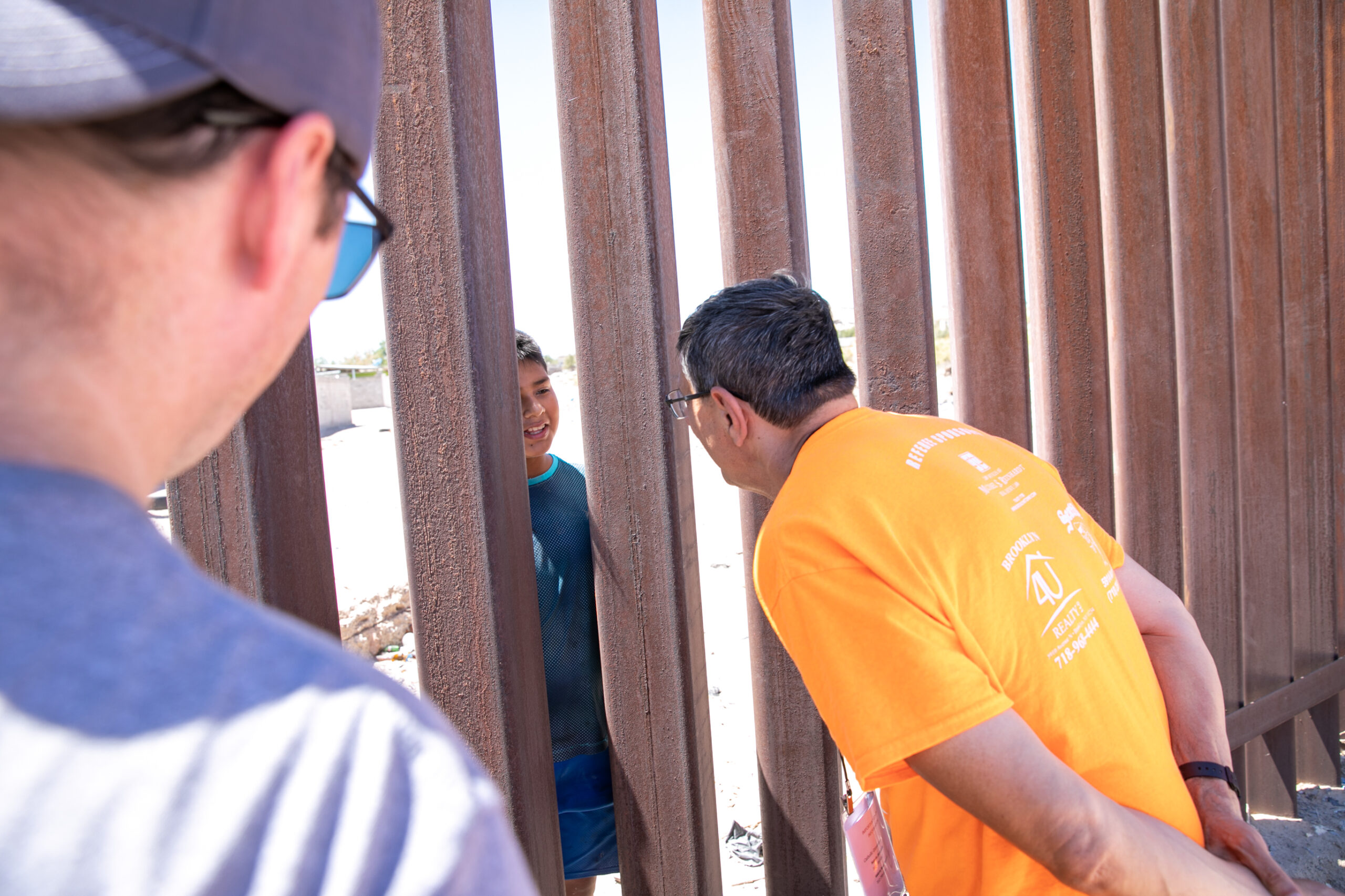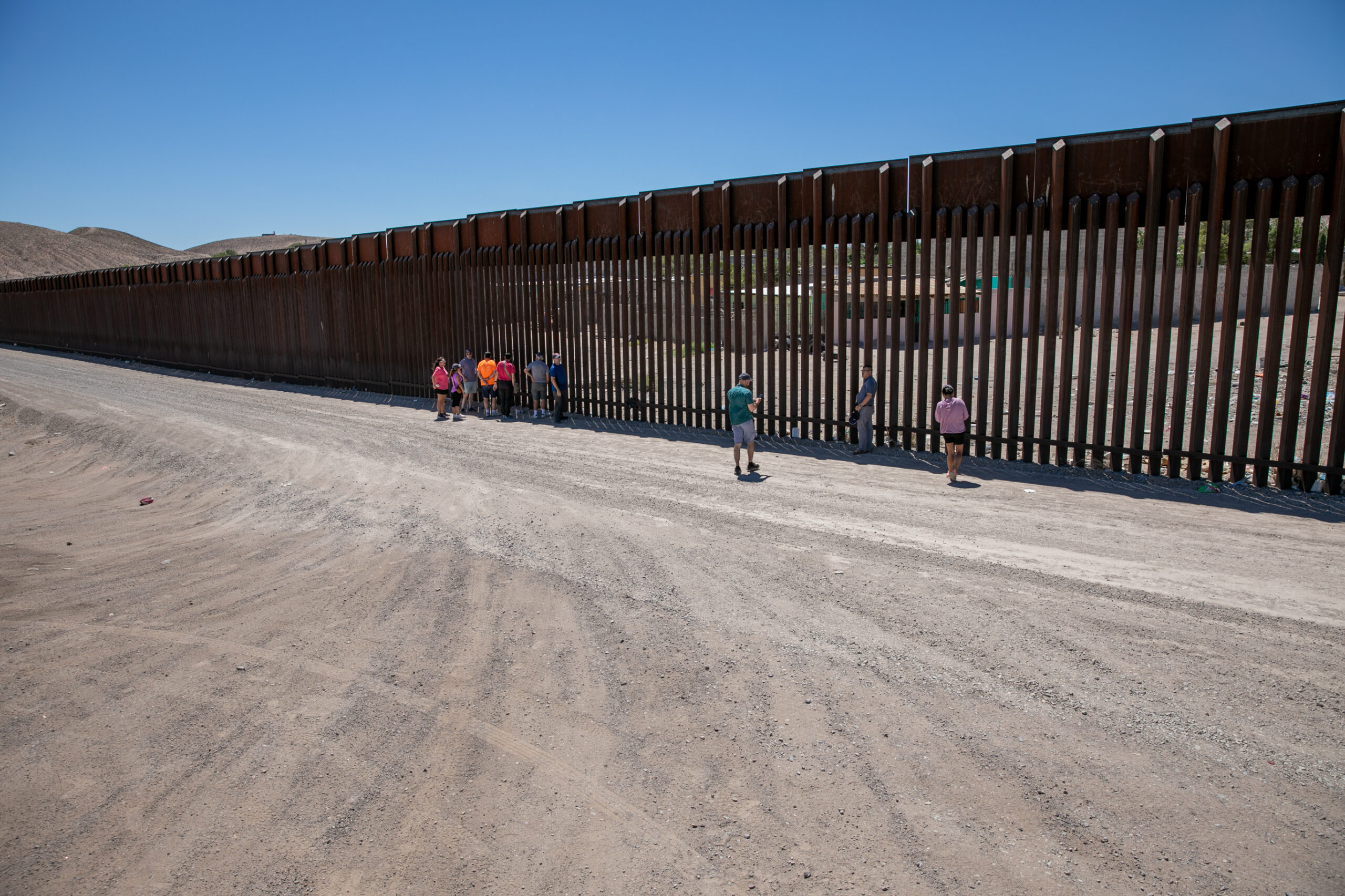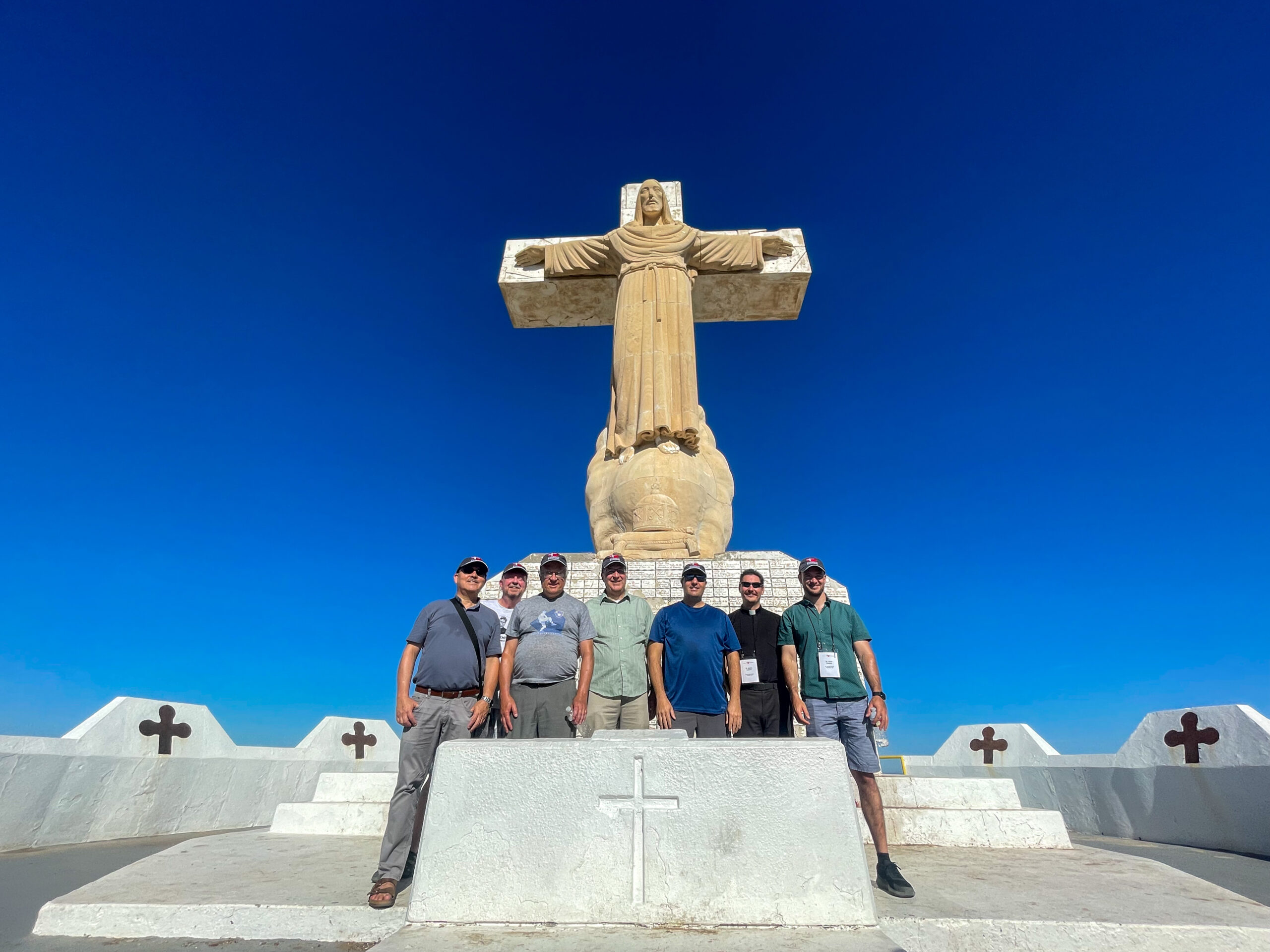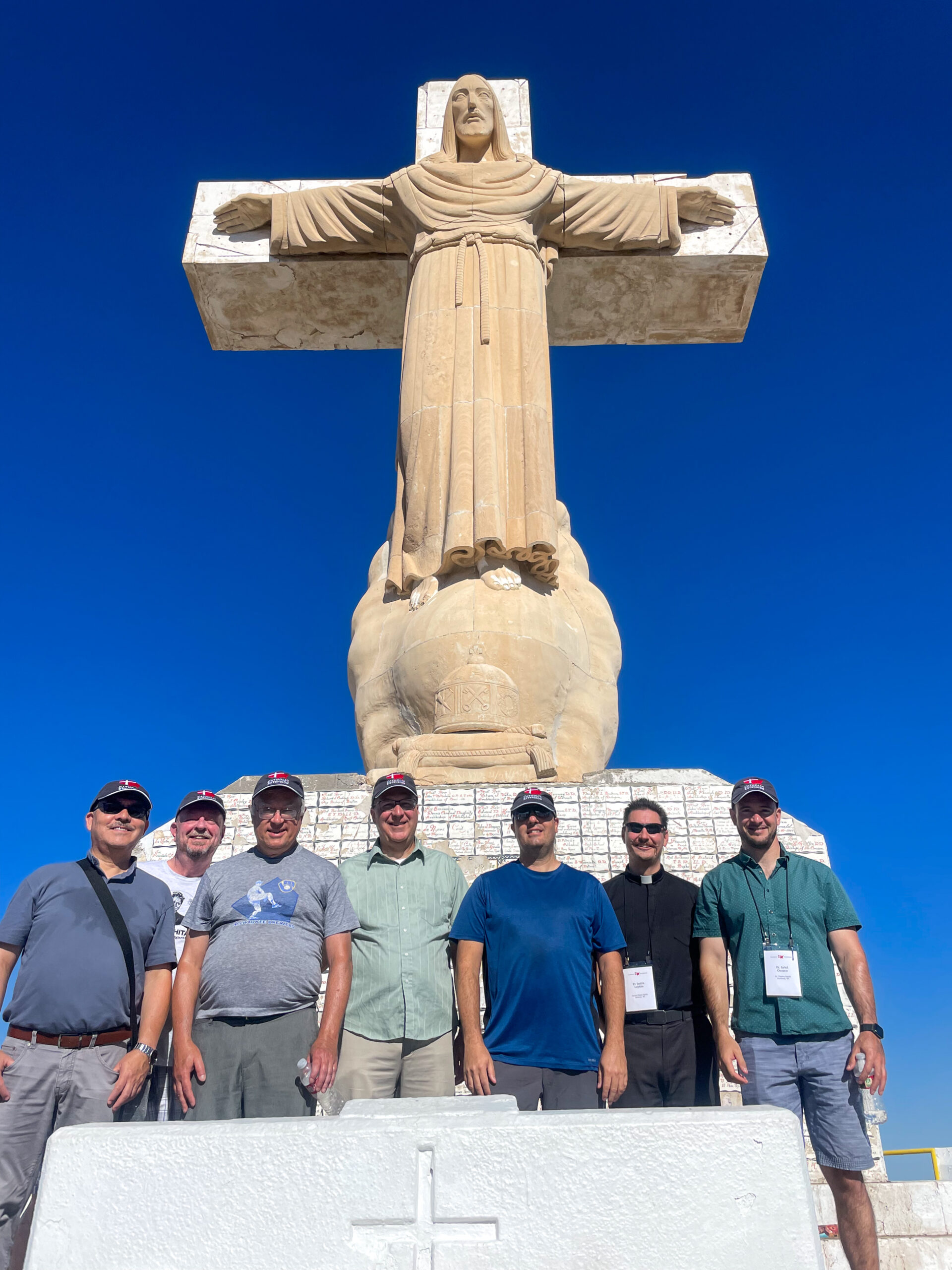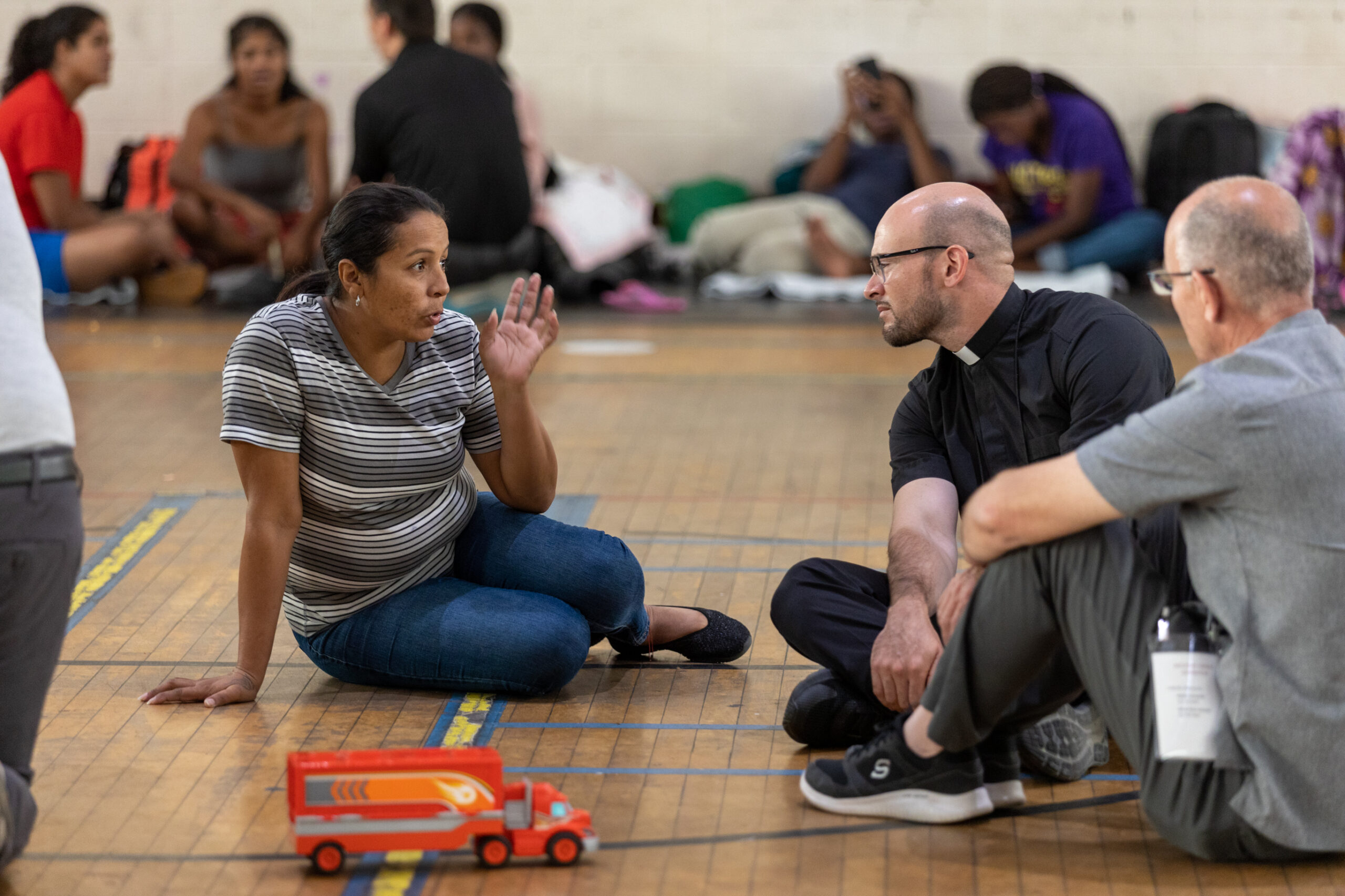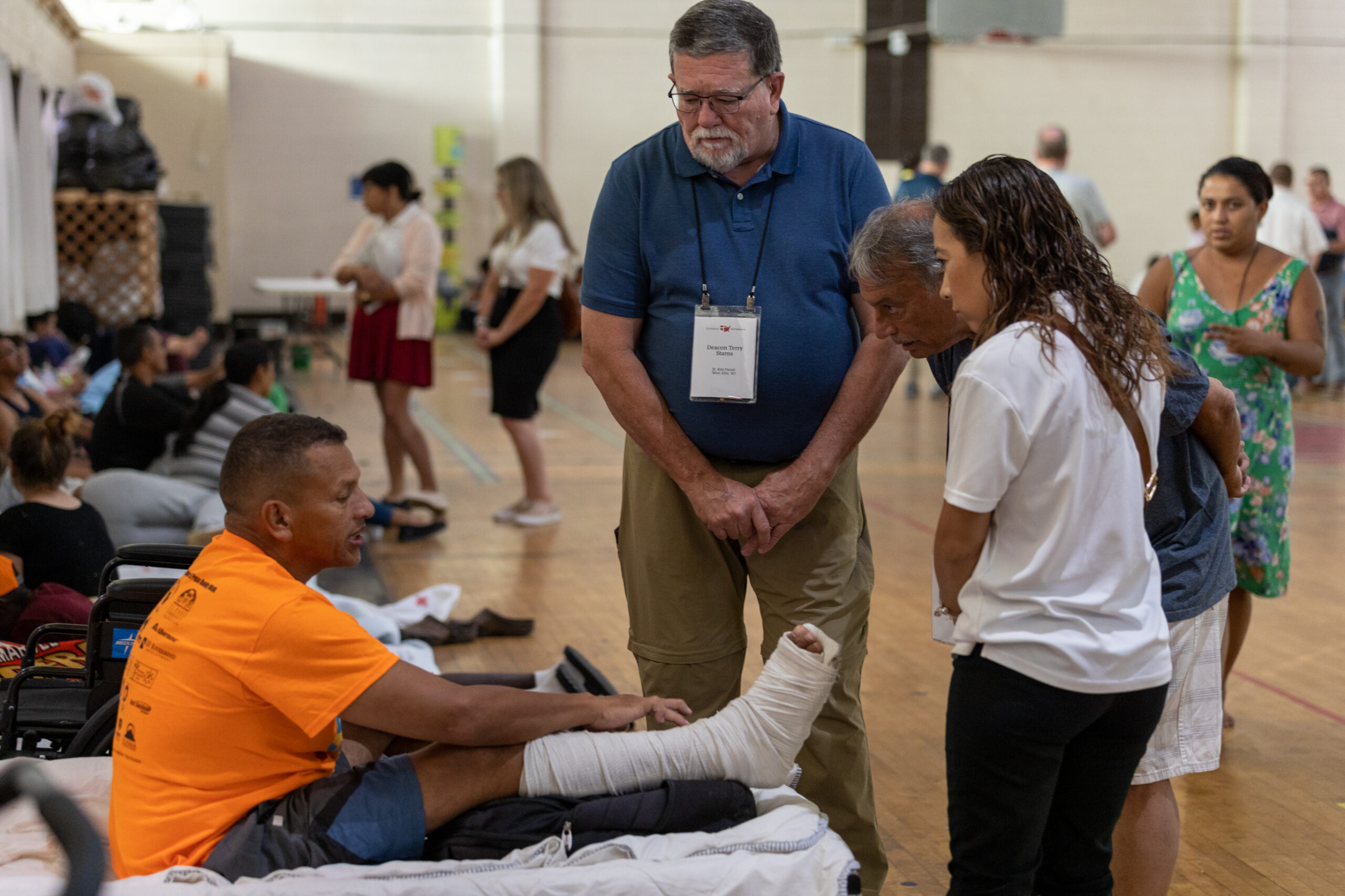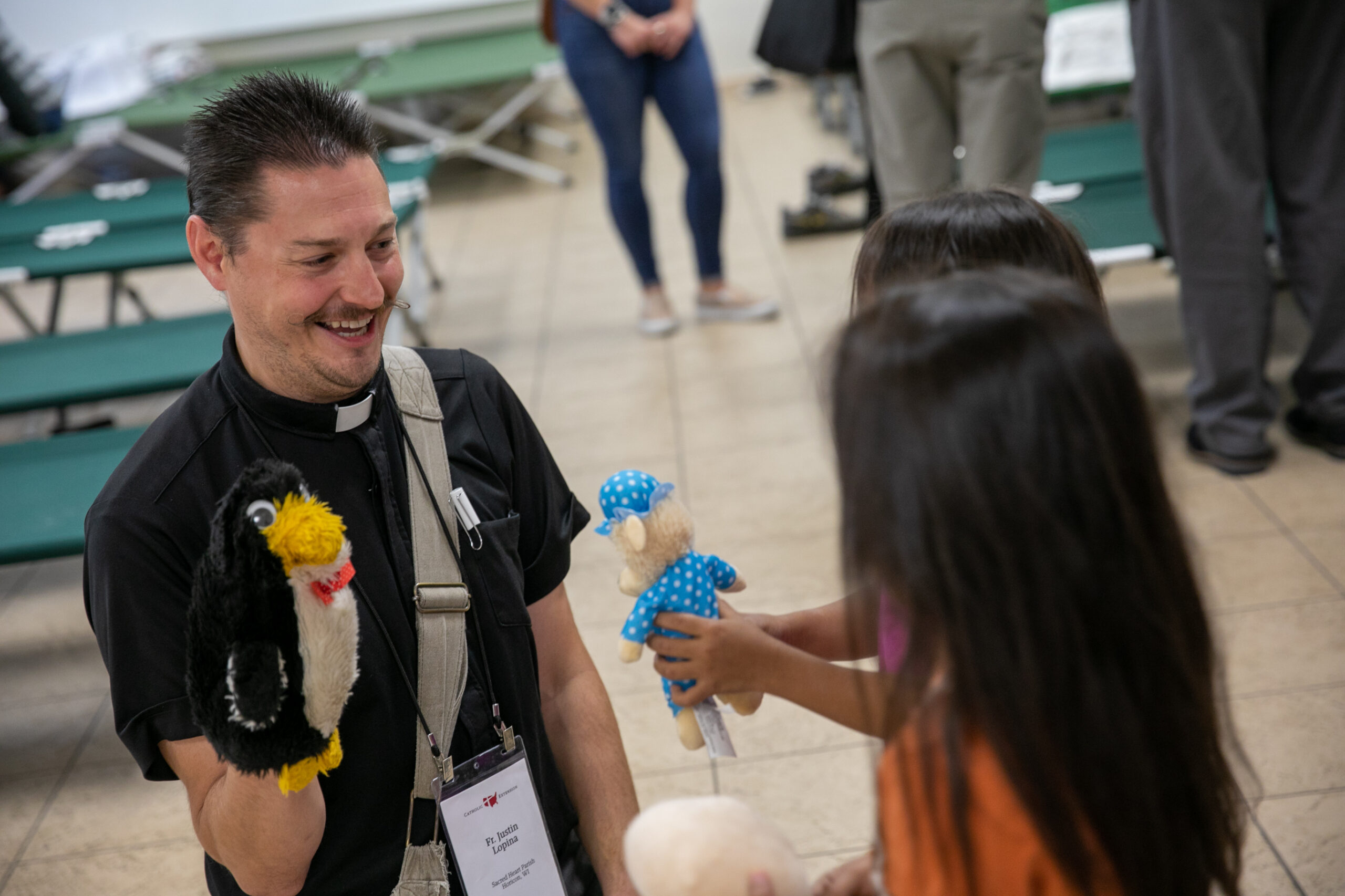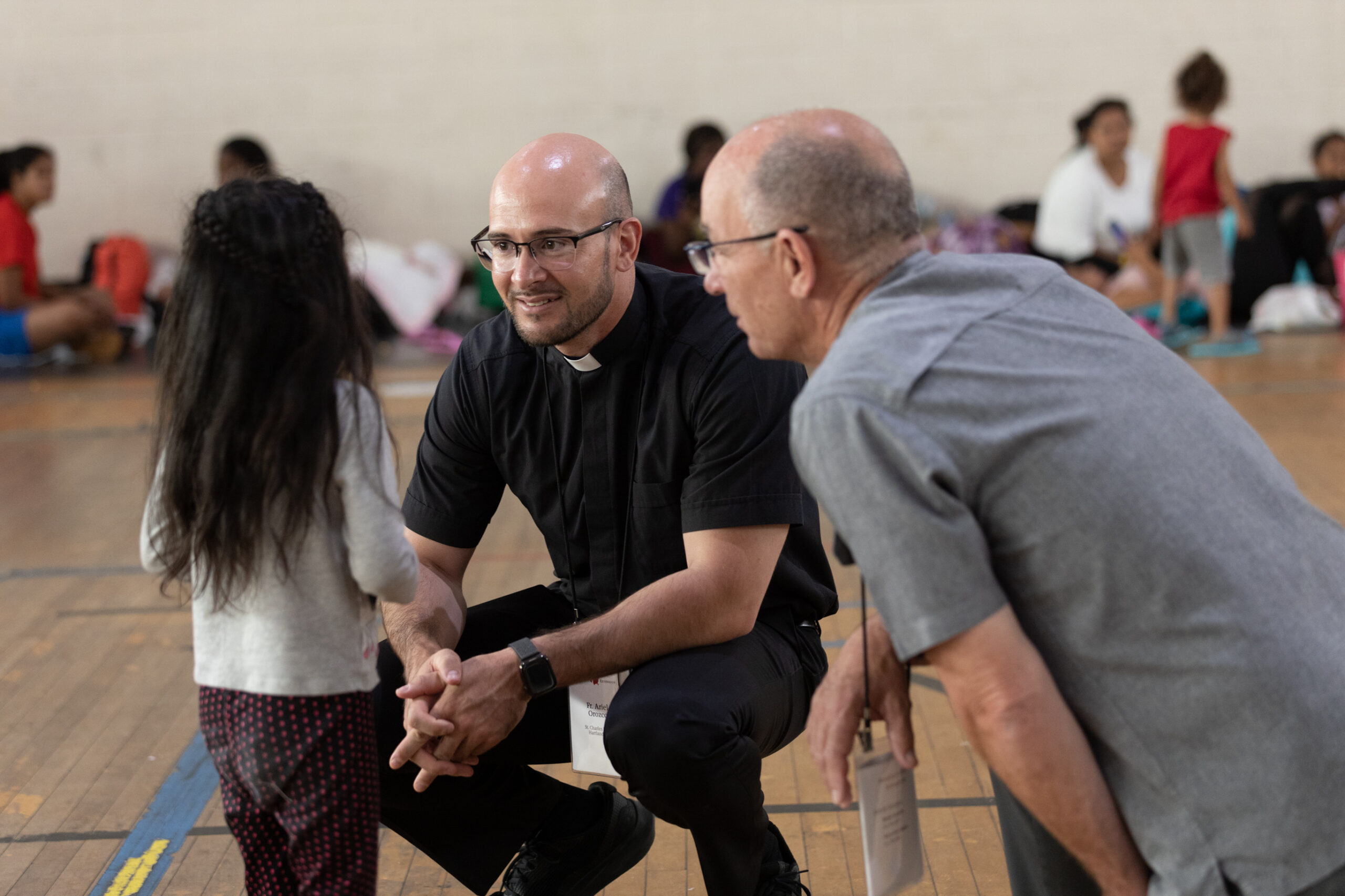
Fr. Ariel Orozco speaks with a child in El Paso, Texas, in August, when 12 clergy from the Archdiocese of Milwaukee visited the border town. (Submitted photo)
After a recent visit to El Paso to learn about migrants, Dcn. Terry Starns shared what he learned about a Venezuelan woman and her 4-year-old son, Kedrick, whom he spoke with through an interpreter.
“She told me that after her long journey and horrifying walk through Central America and the Panama jungle, she and Kedrick were kidnapped by the Mexican cartel,” Dcn. Starns of St. Rita Parish, West Allis, told parishioners in a homily.
“They were held for a month until her husband and his brother could come up with a ransom of $5,000. She also went on to say her captors were good men, in spite of it all. Why did she consider them good men? They did not rape her or harm her 4-year old son,” Dcn. Starns said.
Dcn. Starns and 11 other Archdiocese of Milwaukee clergy visited the Texas border city for 48 hours in mid-August at the invitation of Diocese of El Paso Bishop Mark Seitz, a Waukesha County native. He spoke to Archdiocese of Milwaukee priests about immigration last year at their annual fall gathering, which had a theme of social justice.
When asked what they could do to help, Bishop Seitz replied, “Come hear their stories.”
The other visiting clergy were Fr. Larry Chapman, Fr. Dave Cooper, Fr. Joe Gonzalez, Fr. Chuck Hanel, Fr. Jerry Herda, Fr. Justin Lopina, Fr. Ricardo Martin, Fr. Ariel Orozco, Fr. Oriol Regales, Dcn. Jim Matthias and Dcn. Mike Reesman.
The mission immersion experience was coordinated and paid for by Catholic Extension. Part of its ministry is to sponsor mission visits for clergy from around the country to give them a first-hand look at the Church’s work in missionary dioceses such as El Paso.
The clergymen visited the border wall, Martyrs Hall Migrant Shelter and Sacred Heart Parish in El Paso, and met with El Paso-area leaders, including a woman who leads religious education for young migrants.
“Too often, media and our society portray these migrants as terrible people, criminals, here illegally. My experience was that most of the people are young adults, women traveling with their children, or even teenage children traveling alone,” said Fr. Herda, Pastor of St. Matthias, Milwaukee, and Vicar General for the Archdiocese of Milwaukee. “These migrants just want a chance at life. They want a place where they can feel safe.”
Fr. Justin Lopina enjoyed sharing small talk with Central American teenagers who had just been granted asylum.
It was only later that he learned the teenagers had been through “migrant hell,” he said. Murders would have been very ordinary where they came from, he learned, along with kidnappings and organized crime.
“A good chunk of them have experienced humanity at its worst,” said Fr. Lopina, Pastor to Sacred Heart Parish, Horicon, and St. Matthew Parish, Neosho.
Fr. Ariel Orozco, Associate Pastor at St. Charles Parish in Hartland, was struck by the lifeless appearance of the expanse of desert he could see from the jet that carried the group into El Paso.
“They find hope where we don’t see it,” Fr. Orozco said of the migrants. “The simplicity of what they need is what gives hope.” They want to be able to work and sleep without worrying about being threatened with extortion, the kidnapping of their children or that their family will be killed, he said. “The essential right to have a life free of the worry that your life is going to be taken away.”
Catholic Extension staff asked the priests and deacons visiting with migrants newly out of detention to simply offer hope in the form of a friendly greeting.
“There are people who are starving for the basic kindness you and I receive every day at our favorite restaurant. They have nothing. They know no one,” Fr. Lopina said.
Bishop Seitz was at World Youth Day with 80 young people of his diocese when the Milwaukee contingency visited El Paso. In a videotaped greeting, he asked the visitors to simply listen to all the people they encountered during their visit.
Bishop Seitz, who has headed the El Paso diocese since 2013, grew up in the Hartland/Oconomowoc area as the oldest of 10 children. He attended the seminary at the University of Dallas and was ordained in 1980.
Dcn. Jim Matthias, Director of the Archdiocese Respect Life Ministry, tied the needs of migrants to the Church’s upcoming Respect Life Month.
“The theme for Respect Life Month (October) is that we need to work together to promote a culture of life through radical, sacrificial, Christ-like love,” Dcn. Matthias said. “This means valuing and respecting every individual, from the unborn to the immigrant to the elderly, and showing compassion and support for those who are vulnerable or in need.”
Catholic Church Calls for Care of Migrants
In the United States, National Migration Week is celebrated by the Catholic Church every September.
This week started on Sept. 18, with the last day, Sunday, Sept. 24, also being the World Day of Migrants and Refugees of the universal Catholic Church.
As in past years, the theme of National Migration Week — chosen by Pope Francis for the World Day of Migrants and Refugees — is “Free to choose whether to migrate or to stay.”
In 2004, the Catholic bishops of the United States committed to immigration reform as a priority, and to creating a culture of welcome in which all migrants are treated with respect and dignity. Find out more about the U.S. Catholic bishops’ Justice for Immigrants campaign at https://justiceforimmigrants.org.
The Catechism of the Catholic Church addresses migration:
“The more prosperous nations are obliged, to the extent they are able, to welcome the foreigner in search of the security and means of livelihood which he cannot find in his country of origin. Public authorities should see to it that the natural right is respected that places a guest under the protection of those who receive him.” (CCC 2241)
In Milwaukee, Catholic Charities serves more than 4,400 refugees, domestic violence victims, asylees and children annually by helping them both to obtain status and to navigate their new lives in the U.S., according to its 2022 annual report. In that year, Catholic Charities assisted 534 refugee families with community integration services, including citizenship tutoring.
As of 2021, about 5 percent of Wisconsin’s population was born in another country, far less than the United States as a whole. That figure was nearly 14 percent in 2021, according to the Migration Policy Institute.
Find out more about Catholic Charities’ work with immigrants at https://www.ccmke.org/RIS.

